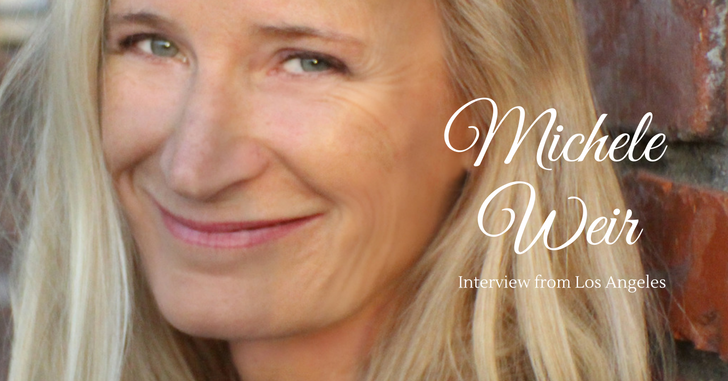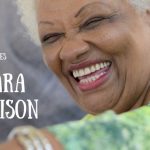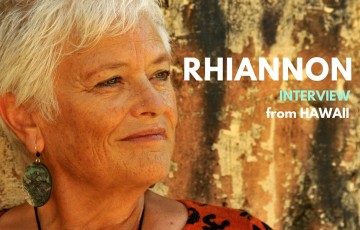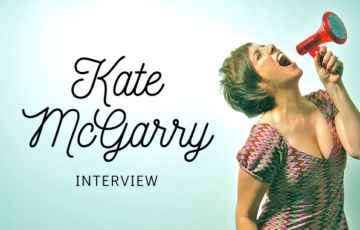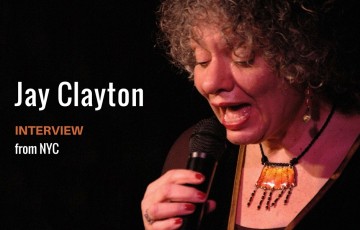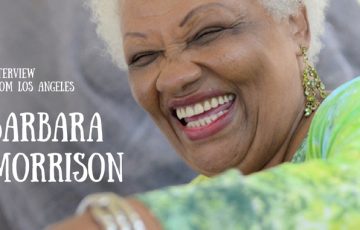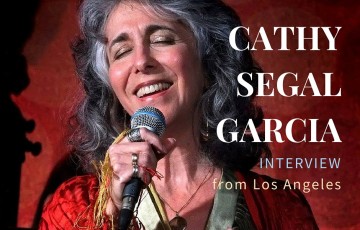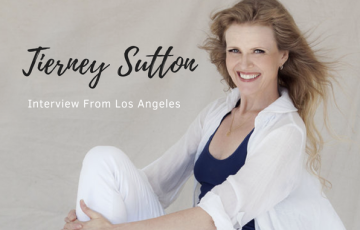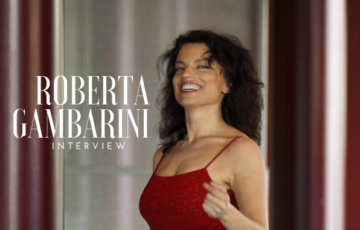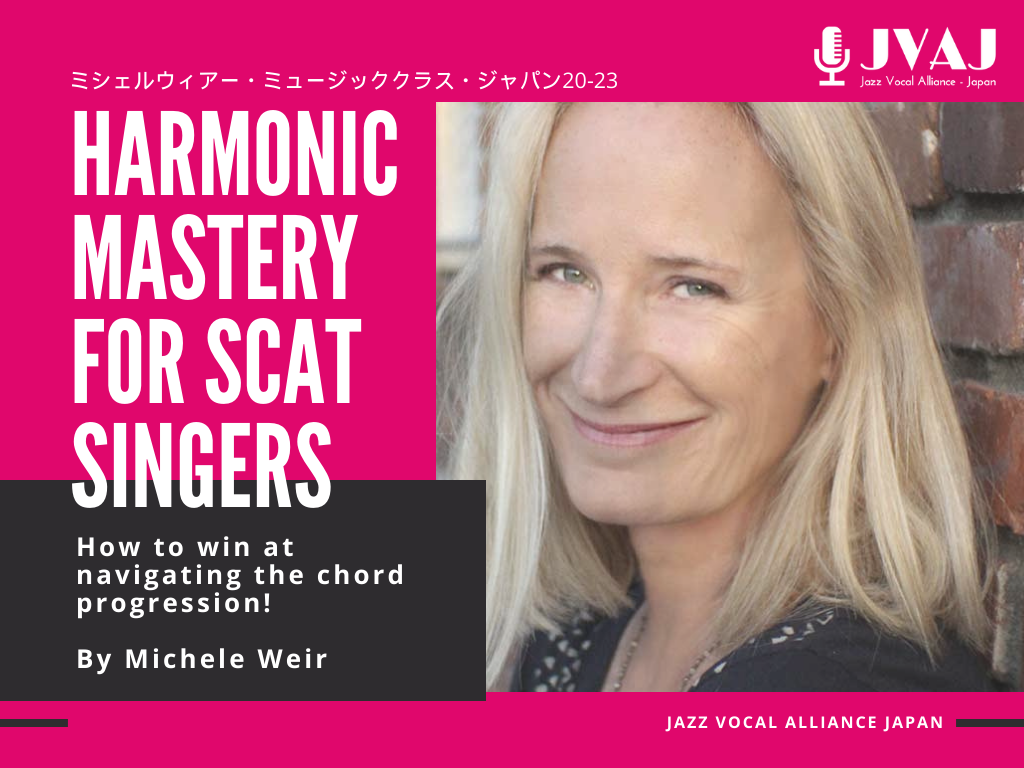- English (United States)
- 日本語
“ I have a strong philosophy for jazz singers, and all singers, and actually, all musicians of any kind, and that is: the overarching goal should be to invite the listeners to FEEL something, emotionally when they listen to you. I hope that sometimes when I perform that I am able to achieve this – I believe in it.” – Michele Weir
Michele Weir – Biography
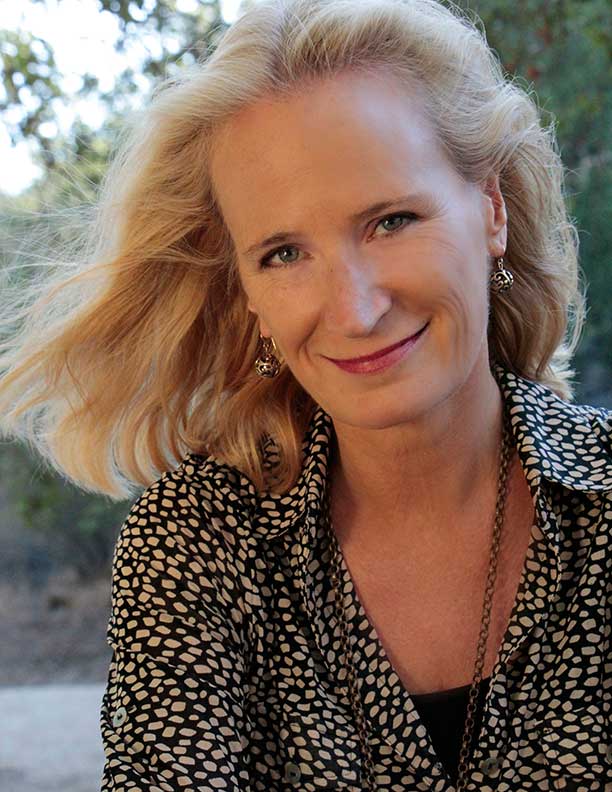
Michele Weir
Over a life-long career in music, Michele Weir has touched the lives of students around the globe and powerfully influenced the growth and development of jazz education. Through her volumes of creative arrangements for vocal and instrumental groups, and her talents as a pianist and singer, Michele is profoundly respected for her versatile skill set and ability to inspire. As one student put it, “Thank you again for being such an amazing mentor. You are truly the person I strive to be.”
Michele’s arrangements are performed by renowned vocal groups including The Manhattan Transfer, New York Voices, The Swingle Singers, M-Pact, Beachfront Property, Chanticleer, Voice Trek, and her orchestral works played by various symphonies including the Boston Pops. Her educational arrangements are distributed by leading publishers including Hal Leonard, Alfred Publishing, Shawnee Press, SMP Jazz as well as her own online company, MichMusic. As Vocal Producer for the Manhattan Transfer’s 2009 CD release, The Chick Corea Songbook, Michele worked closely with the Transfer and contributed two arrangements to the project. Other arrangements or compositions have been featured on the Shari Lewis TV show, Disney’s 101 Dalmations Sing-along CD, and the Holland America Cruise line.
Currently on faculty at University of California, Los Angeles (UCLA), Michele taught previously at USC, CSU Long Beach, and the Phil Mattson School. As a highly sought-after teacher and clinician, Michele has been invited to teach in 23 countries to date and has delivered presentations for some of the world’s most prestigious music conferences including the World Choral Symposium, the IAJE and JEN Conferences, and the ACDA National Conference. Her educational book/CD sets, Vocal Improvisation (Advance Music), Jazz Singer’s Handbook (Alfred Publishing), and Jazz Piano Handbook (Alfred Publishing) are available internationally.
Michele’s past tours as pianist and/or singer range from Ogalla, Nebraska to Carnegie Hall, South Korea with Patti Kim to Atlantic City with Bobby Vinton, and more. A former vocal member of the Grammy Nominated PM Singers (under the direction of Phil Mattson,) Michele also contributed arrangements to the group’s concert repertoire and recordings. Her duo CD as a vocalist with jazz guitarist Bruce Forman is titled, The Sound of Music. In her role as Music Supervisor for the DreamWorks film, Prince of Egypt, Michele journeyed through Europe and Asia to oversee the music production for the film’s foreign language dubs.
Michele Weir – Interview
-
Hello Michele! How are you feeling about going to Japan in this coming October 11-16?
I’m so happy to be coming back to Japan; it’s been a few years since I’ve been there. On this trip I’ll being my teaching in Osaka which I think is a beautiful city. I’ve really enjoyed through the local streets and trying different restaurants. After that I go to Tokyo. I spent a month some years ago working in Tokyo supervising the dub of a DreamWorks movie – I stayed in Shinjuku and explored the city on my off time. Loved it!!
-
Thank you for coming to Japan and giving us an opportunity to meet and learn with you. You already have taught a lot of Japanese students. What brought you to be connected to Japan like publishing your books in Japanese and what do you like about working internatonally like this?
Working internationally is ALWAYS a thrill for me – I never get tired of it. I am so honored and fortunate to have been invited to Europe, South America, different countries in Asia, and so on many times. I was just talking with Judy Niemack yesterday and we were chatting about travel – I told her that no matter how many times I go out of the country I still get a little bit excited when the flight first touches down on the ground!
Regarding my books that are translated into Japanese (Vocal Improvisation and Jazz Singers Handbook,) this came about because my publisher Advance Music (based in Germany) has a relationship with ATN publishing in Japan. I’m very happy that ATN has provided an opportunity for Japanese jazz singers to be able to utylize these materials.
I think it’s always fun, and can be a challenge to work with non-english speaking students. We usually have an interpreter when I work in Japan. Honestly working with an interpreter tends to change my teaching style as I must speak, then wait for it to be translated, then speak again then wait again, so moving at my usual flow and pace is not possible. But the information still gets communicated and I do find that the Japanese jazz singers I’ve worked with are quite dedicated to be their best in jazz and to sound as jazz authentic as possible in terms of the groove, style and especially in the pronunciation. I’ve always had good experiences in coming to Japan.
-
Could you let us know who are your idols? Please tell me about a couple of your most favorite musicians!! (no matter as a singer / as a educator of is this is mute pint, let’s not do this question. )
It’s a very difficult question because every since I discovered my love of jazz at age 16 or so, there have been so many different artists that have inspired me greatly. Nancy Wilson is one, she was always one of my favorite jazz singers. Nancy draws me in and seems to ‘speak the truth’ with commitment and passion when I hear her sing. I also used to listen a lot to Carmen McRae. Ha, I would spend hours in front of the mirror singing along with Carmen McRae and Nancy Wilson and also singing along with recorded instrumentalist solos by Dexter Gordon, Miles Davis, Phil Woods, and others, trying my best to imitate them exactly. In retrospect, doing this was probably the most useful thing I ever did to learn jazz.
For vocal groups, since I’m an arranger there are a whole network of groups that I love. New York Voices has always been a favorite. Wow – four awesomely talented singers coming together with such soul and expression – I love it. And as a pianist I used to listen to so many hours of Oscar Peterson and Bill Evans. Later though I fell totally in love with Larry Goldings and Kenny Werner. I also used to listen to early Steps Ahead and listened so much I was singing along with Michael Brecker solos. Wow, this was many years ago however, but I do think the very frequent LISTENING very much helped to shape my ear for jazz and consequently my ability to teach it.
-
What part of singing Jazz you love the best? And what is your strong point as a jazz singer?
The last 15 or more years I’ve been an arranger and teacher more than a performing singer or pianist. BUT, with that said, I still do sometimes perform, and I might start to do more again at some point.
I think my strengths as a singer are in my overall musicianship, allowing me to really hear changes and be 100%, totally confident in my flexibility to be highly creative and still hit the ‘good’ notes while keeping attention to the rhythmic pocket and of course the lyrics. It’s also really great to be a pianist because I really know everything about what the rhythm section is doing, and how to ‘speak their language’ and hear and think about the music in the same way they do. And one more thing: I have a strong philosophy for jazz singers, and all singers, and actually, all musicians of any kind, and that is: the overarching goal should be to invite the listeners to FEEL something, emotionally when they listen to you. I hope that sometimes when I perform that I am able to achieve this – I believe in it.
-
How about the recording? We know that you’ve been working a vocal coach of great singers. Could you share your experience about CD making? What did you like about coaching them?
I have spent thousands of hours in the recording studio in the past, but it’s been in various contexts. A good amount of my time in the studio has been as a member of a vocal group (2 CDs with the pm singers many years ago,) or recording as a solo singer (2 CDs) and various piano work. There have also been many many hours in the studio as producer (vocal producing the last Manhattan Transfer CD and other vocal group recordings; supervising the dubs for the DreamWorks film, Prince of Egypt in 6 different countries – including Japan!) Also much recording time for the CDs that go with my three books, and the ScatAbility app, etc., etc.
I do love to work with my student vocalists on their CD or demo projects! I love to help them organize the whole thing, developing a concept for what material they want to record, what vibe they want to achieve musically, and overall what they want to ‘say’ in their recording. I love to mentor them with the practicalities of budgeting, choosing musicians, arranging their tunes, booking the studio, etc. I have a small Pro Tools set up at my house so I can help singers get the experience of singing with a track in the studio, and recording with headphones on. This can be VERY helpful in prep for their recording. We often record 3 or more takes, then composite – it’s a good learning experience for what is possible when in the studio. During these kinds of sessions, I also produce the singer, making musical suggestions to help them be their most natural and emotionally communicative self, which really can be difficult to do in the recording studio!
-
What brought you to start working as an educator? What do you like about it? And what do you care most as a teacher? And what is your goal as an educator?
When I first started learning about jazz it was in association with a very well known jazz pedagogue, Phil Mattson. It was complete ‘lucky random opportunity’ that I met him when I was 16 years old and I had just started going to college. I will never forget the first time I heard the performance of a vocal jazz ensemble that was under his direction. I loved it! Very exciting for me to hear this for the first time. Then I started listening to instrumental and solo singer jazz recordings and realized, wow… This is for me, I love jazz music!!
My teaching began when Phil Mattson started a series of summer vocal jazz workshops and he asked me to be a teacher. I was still only about 18 years old, but I played jazz piano, could scat sing well, and was performing with him all the time and he and I had a great musical chemistry. (And still do!) Then after a few years after that I was on the road as pianist and background singer with a touring band, but Phil Mattson started a private music school and asked me to come teach full time. So I said yes and this was my first and only time as a full-time school teacher. It gave me a lot of good experience.
After moving to Los Angeles to get my Masters at USC they gave me a full tuition scholarship so that I would direct the vocal jazz ensemble. So I started teaching there while working on my masters degree, then continued on as teacher after I completed my degree program. Around this time I started to get calls to come do workshops and clinics around the United States Canada and Europe. I used to go to Europe at least three or four times a year (plus around the US and Canada;) I was constantly going to the airport and getting on a flight somewhere! Then later the workshops spread to Asia, South America, South Africa, etc.
Currently I teach at UCLA one day a week, and of course travel internationally doing workshops, teach private students at my home studio and have Skype lessons with students all over the world.
Here’s what I care most about as a teacher:
- I think of myself more like a mentor than a teacher. I don’t think we can separate the human being and the life experience of the human being from what they’re doing in music. What they are doing in music is only one part of who they are as a whole person. These things are all connected, and with that in mind, it’s not enough to just teach a little technique, or the notes to sing on a scat solo, or what a dominant seven b9 chord is. I think it’s important to talk with a student on a personal level and know what their big picture goals are and what they’re challenges or blocks are so that we can proceed in a holistic and effective way. THIS gives me much satisfaction. I enjoy the human connection of giving my best attention to people that are lovers of jazz and music, and helping them in any way that I can to enrich their lives.
- I try to be quite organized in my teaching. I pretty much always give homework assignments to help students stay focused and I invite the them to ask questions if they have any in between sessions. This is important because the goal is for them to improve, of course! I don’t want a student to have a block or hang up of any kind in between sessions because it might stop their progress. I try to make my aesthetic and informational feedback very clear so that people truly understand it. Getting confusions or questions resolved can be VERY satisfying for students and can lead them to more peace and confidence which then allows them to relax and focus more of their attention on the joy of singing! I always want my students to be the best overall musician they can be. Not just a good singer but a good MUSICIAN.
- I think all singers will do themselves a great service to learn basic jazz piano. It’s not that hard, it’s very doable for everyone that wants to do it. So in most of my private lessons we spend a few minutes on piano even if it’s just 10 minutes or so, then I give a little piano homework assignment.
-
Please tell us about your learning materials.
- The Jazz Singer’s Handbook
This was written to go along with my UCLA jazz solo singing class. It covers the ARTISTRY of jazz singing (phrasing, feeling groove, soulful expression of the lyric, etc.) and the MASTERY of jazz singing (knowing how to talk to the band using the terms they understand, lead sheet writing, preparing a gig book, and much more.) There is a demonstration/practice CD that comes with the book featuring Peter Eldridge (New York Voices) and myself. Very useful book for solo jazz singers. The Japanese version of this book is published by ATN Publishing.
- Vocal Improvisation
This was my first book from many years ago now! It’s kind of a total, comprehensive, everything you ever wanted to know about vocal improvisation book. There is also a demonstration/practice CD featuring Darmon Meader (New York Voices,) Don Shelton (The HiLos and Singers Unlimited) and myself. The book contains basic jazz piano info, much other reference info like suggested recorded solos to transcribe or just sing along with, and interviews by singers such as Bobby McFerrin, Kurt Elling, Sheila Jordan, and many more. The book addresses use of syllables, melody and hearing the changes, all with specific exercises and for all levels: beginning, intermediate and advanced. The Japanese version of this book is published by ATN Publishing.
- Jazz Piano Handbook
Designed for any singer or non-pianist instrumentalist to get STARTED with jazz piano. It is not for pianists, it’s for non-pianists and mostly trains you to play basic chords in a good accompaniment style: ballad, swing, bossa. There is also a demonstration/practice CD with the book. After using this book you will ultimately be able to play through the chords of a jazz standard lead sheet and sing along with it, practice your scatting, check for accuracy of the chord progression, write songs or arrangements, develop your ear, understand the world of chords and progressions so that you can better connect with the instrumentalists, and so on.
- ScatAblity
My latest project, ScatAbility is an iPhone (or iPad) tool for scatters! So fun, so easy to use, and great practice. You listen to demonstrations by professional jazz singers to learn etudes (scat solos based on standard tunes,) exercises and call & response examples by ear. No knowledge of theory required! You can then mute the vocal demo track to practice your own improvisational ideas with the backing track. And the most fun thing about the product is that you can then record yourself improvising with the track and listen back, and export the recording if you want. It’s a free download with in app purchases – if you have an iPhone there’s no reason to NOT download it to check it out. (And please join our ScatAbility facebook group to hear about specials and be a part of the community: https://www.facebook.com/groups/546054808880160/)
-
Please let us know about how to keep yourself so creative and keep giving a lot to people around you.
I simply enjoy creating new projects. (Books, CDs, apps, workshop concepts, etc.) There’s never really a shortage of creative ideas for this, but there IS a shortage of time to do it all! 🙂
-
For the closing of this interview, what do you love about jazz? Could you give any messages for singers in Japan? Do you feel welcome if one of a singer say that she/he would love to visit you someday? If you have anything to say, please let me know!!
For the jazz singers in Japan, I recommend in general that working on American English pronounciation (as opposed to Australian or British English) is one of the first and most important things to do. The swing music of our jazz standard songs is written to work specifically with the English language, so it can be a challenge for anyone who is not a native English speaker to sound jazz authentic if they have a heavy accent. With my Japanese students (here in the US or Skype students in Japan,) we almost always spend some amount of time working on correct pronounciation.
You are welcome if you have a question to write me through my site, www.michmusic.com. And you might want to check out the PODCAST page and the INFO pages because there is some free info there. MichMusic Personal Study is the area of my site to learn more about Skype or in person (visiting LA for a few days/weeks!) lessons.
Wishing you all good things and much JOY in your music!
